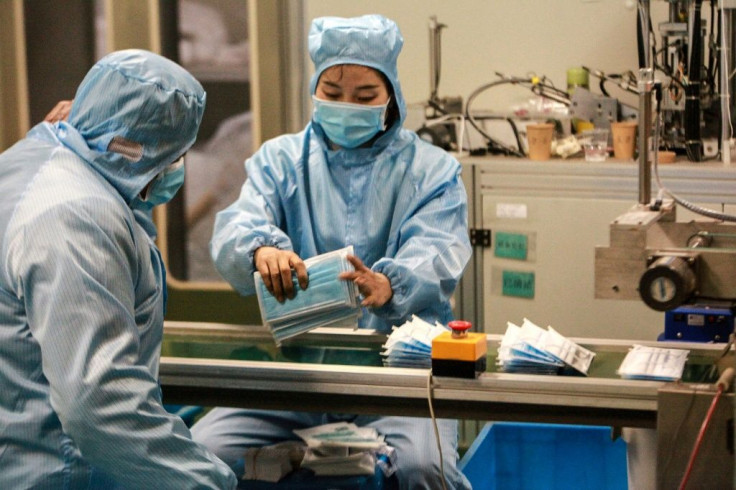Coronavirus Update: Vietnam Bans Flights To China, Seeks To Identify, Test Chinese Workers

KEY POINTS
- Vietnam and China share a 745-mile border
- More than 90,000 Chinese work in Vietnam
- Vietnam has banned all flights to mainland China
Vietnam said over the weekend it will ban all flights to and from China over the coronavirus epidemic and also declared a public health emergency.
While Vietnam initially also banned flights to Taiwan and Hong Kong, those restrictions were lifted after the government conferred with Taiwan’s Foreign Ministry as well as with Hong Kong officials. (Taiwan has invested some $32 billion in Vietnam over the past three decades.) Taiwan has reported 10 cases of the virus.
“We have suspended flights from Vietnam to mainland China only,” Trinh Quoc Tuan, chief of staff at the Civil Aviation Administration of Vietnam, said.
The Vietnamese government also said it will cease issuing visas to foreign visitors who have been in China in the prior two weeks.
Vietnam has also taken steps to remove the coronavirus risk from its supply chain.
Factories in the port city of Haiphong, a manufacturing hub in northeastern Vietnam, were ordered to report the numbers of Chinese workers they have. Thousands of workers from China were expected to return to Vietnam after the lunar new year holiday.
Vietnam and China share a 745-mile border.
Due to its location near the Chinese border and its harbor facilities, Haiphong has benefitted from foreign direct investment and now has an influential role in the region's supply chain.
Hundreds of companies (many of which have received investments from mainland China, Taiwan or Hong Kong) operate in the Haiphong Economic Zone. Up to 3,000 Chinese workers are employed in the region, including many from Hubei province, the epicenter of the epidemic.
Le Van Thanh, the Communist Party chief of Haiphong, ordered a temporary ban on any Chinese from Hubei province from entering the city, effective Feb. 1.
Now manufacturers, many of them foreign-based, are under pressure by the virus to limit or restrict Chinese employees in their factories and test them medically.
"Foreign companies must limit workers returning to factories in Haiphong from Hubei province and other affected Chinese provinces," stated Haiphong's municipal government. "Areas for isolation must be arranged for those who must be present at the sites, in order to carry out health inspection and supervision."
Regina Miracle International, a Hong Kong-based apparel maker that operates at Vietnam Singapore Industrial Park in Haiphong has 301 Chinese workers. More than 100 of its employees who had returned from Hubei were placed in isolation by Haiphong authorities.
Taiwan's Formosa Ha Tinh Steel said last week it will not allow 430 of its Chinese employees who returned from holiday to resume work before Feb. 15.
On Sunday, Vietnam’s Labor Ministry asked businesses across the country to ban Chinese or other foreign workers who have traveled to virus-stricken areas of China from working in their sites. Such returnees must be placed under quarantine for two weeks.
"Haiphong's move to order manufacturers to report the number of Chinese workers is a necessary step to curb the spread of coronavirus in the port city," said Dang Tam Chanh, an independent political expert specializing in information access.
On the whole, some 91,500 Chinese nationals have valid work permits in Vietnam. At least 40% of them visited China during the recent holiday.
As of Monday morning, Vietnam had eight people confirmed as infected with the coronavirus.
One of them was a 25-year-old female hotel receptionist who worked in the coastal resort city of Nha Trang. She contracted the virus after coming into contact with a Chinese father and son, thereby becoming the second case of human-to-human transmission in Vietnam.
Three other cases comprise Vietnamese nationals who had been in Wuhan.
© Copyright IBTimes 2024. All rights reserved.




















